Nearly all African ambitions depend on thriving agriculture to support modern economies across the continent.
Strictly Personal
Why Morocco’s OCP and Africa Need Each Other, By Jasper Hamann
Published
9 months agoon

Rabat – Countries across the African continent currently stand at a crossroads, facing choices that could determine their fate for decades or even centuries to come. While developed countries around the world are currently focusing on Artificial Intelligence (AI) as the driver for economic growth in the coming years, African countries are still struggling with issues that keep their economies stuck in the 20th century. Left behind?
Decision-makers at last week’s World Economic Forum summit in Davos salivated over the potential of AI as a means to boost their primarily service-oriented economies. Meanwhile, most African countries are still struggling to fully industrialize. African economies are making a sincere effort to reach a stage of development, that of an industrial manufacturing economy, which is a type of economy that the richest countries in the world have abandoned decades ago…
This disturbing trend can be attributed to a multitude of factors, and there are various interesting articles that point to corruption, poor leadership, the lingering effects of colonialism, as well as ongoing conflict and poverty as the prime or even sole reason for Africa’s continued lagging behind in the global economic race. While these articles often provide well-reasoned arguments to point to one factor or the other, in reality it appears to be exactly the complexity of these intertwining issues that has kept African nations where they currently are.
So how can such a complex web of issues be resolved, on a continent that has witnessed an onslaught of coup-d’etats, famine, drought, violent extremism and poverty? I would argue that the key is to start with the absolute fundamentals, the core drivers of stability and sustainable growth. This is the first stage that developed nations have taken, and it is a stage only a handful of African countries have (partially) reached.
I am talking about a country’s ability to produce enough food to feed its population, and the resulting freeing up of labor to support other sectors of the economy. Most European countries reached this stage during the “agricultural revolution,” between the 17th and 19th century, which freed up large parts of the population to instead work in trade, industry, the arts, or academia.
Often referred to in the rather abstract term of “food security,” this phase is crucial in a nation’s development because it creates the foundation for a stable economy where the nation’s talents can flourish.
African ambitions
Still, African nations are definitely not lacking vision when it comes to their economic development. There’s Senegal’s “Emerging Senegal” plan, Ethiopia’s “Growth and Transformation plans,” or Morocco’s own “New Development Model,” which embarrassingly still features a typo in the title of its official English government publication.
If you crave more vision, just have a look at Kenya’s “Vision 2030,” or Egypt’s “Egypt Vision 2030,” or perhaps you can find inspiration in Tanzania’s “Vision 2025.” If that is not enough vision for your liking, there is always Rwanda’s “Vision 2050,” or Cameroon’s “Vision 2035.”
What these documents lack in terms of originality in their naming, they all share in ambitious targets and dreams of becoming a thriving modern economy.
Yet nearly all of these documents also recognize a significant issue plaguing this development. Africa’s top resource, its vibrant young and talented population, is stuck tilling the soil to produce meager yields at their family farms. While farming is arguably one of the world’s most noble professions, ideally as a modern country you would like to have as few people as possible doing it, while producing rich yields that support both domestic consumption and exports.
Having a thriving domestic agricultural sector is a key factor in reaching nearly all of the buzzwords that regularly roll off politicians’ tongues. It is vital to sustainable development, clean energy, technology-driven economies and being a genuinely competitive international player in the coming AI era that is likely to change our labor markets and economies like never before.
Africa’s handicap
One factor that is often left unspoken in these visionary documents, is what can be considered to be Africa’s handicap, the thing that leaves it trailing its Northern and Western neighbors, as well as other developing countries in the East. This handicap is as clear as it is ever-present; African countries face more extreme weather conditions and harsher climates, and climate change is only going to make this worse in decades to come.
Still, harsh climates and extreme weather are issues that modern agriculture has its answers to, mostly in the form of modern farming techniques, water preservation, and fertilizers.
A good example is Australia, which receives the least rainfall of any inhabited continent on the planet. Despite this, and the ever-growing effects of climate change, Australia has spent the last three decades boosting its agricultural productivity and output, through modern farming techniques, technology and fertilizers.
The irony is that much of the minerals feeding Australian soil and boosting local farmers’ yields, comes from Africa. In fact, 83% of Moroccan exports to Australia are classified as “mixed mineral or chemical fertilizers,” followed by its next biggest export of “non-knit women’s suits,” at 1.87%.
These fertilizers are primarily made from Morocco’s vast phosphate reserves. This resource is so vital that when Norway in June 2023 discovered its own large reserves, the EU went out of its way to release a statement hailing it as “great news” for the continent. And phosphate is not just used for vital fertilizers; it is also a key component in various types of electric cars, batteries and solar panels, all important products for Africa’s envisioned economic boom.
Yet for farmers in many African countries, fertilizers have long been the missing ingredient to take the step toward self-sufficiency that could become the foundation of true sustainable economic growth.
Quality fertilizers are often too expensive for African farmers, reducing agriculture from being an “engine of growth” to becoming a brake on national economic development.
This has dire effects far beyond agriculture, as low yields and inefficient agriculture does not just hurt farmers and consumers, but also limits the amount of people available to work in every other sector of the economy.
It is important to recognize the wonderful irony that boosting agriculture means fewer people have to work in agriculture. This means that smallholder farmers can send their children to universities, and young Africans can focus their talent on building technology, providing healthcare or services or starting businesses.
Perfect match
Moroccan fertilizers have long fed agriculture from the US to Australia, yet remain inaccessible to many farmers in Africa. This problematic fact is not just a concern to those farmers, but also to Morocco’s largest fertilizer producer: the OCP Group.
Over the past decades the state-owned phosphate company has evolved from a modest mining company to a fertilizer giant that outcompetes most of its international competitors from some of the world’s richest countries.
As OCP Group evolved into a global player in its sector, its vision has also evolved, primarily around its focus on Africa, Morocco’s home continent. Over the past years, Morocco and OCP Group have made fertilizers a key part of diplomacy, trade, and south-south cooperation.
This focus has not just been beautiful words on the company’s “vision and mission” page, but instead has led to a variety of bilateral agreements with other African states. It has resulted in fertilizer plants being erected in Ethiopia, Nigeria and Ghana, with Togo and Senegal as two likely next candidates for such production facilities. It hasn’t just led to a wider availability of quality fertilizers, but also to a richer offering of products tailored to the context of African countries.
To support this, OCP Group and Morocco’s Mohammed VI Polytechnic University (UM6P) are building state-of-the-art digital soil maps in a variety of African countries, including Ethiopia,Senegal, Zambia, Kenya and others. These maps allow scientists to tailor fertilizers to the exact soil types of the receiving countries, which helps boost yields, while limiting the need to overuse fertilizers, which helps perverse the fertility of the soil and limits the cost of fertilizing land.
Fertilizers have even become a tool for emergency aid, which became apparent in 2022, when Morocco gifted 1,200 metric tons of fertilizer to Jamaica amid the island nation’s disastrous local supply crisis.
Mutually beneficial
It is important to recognize that this larger strategy is not a form of charity, and OCP Group is not trying to act like a benevolent patron. Morocco and its OCP Group need Africa as much as the reverse.
Africa currently is home to 60% of the world’s uncultivated arable land, the world’s youngest population, the richest reserves of natural resources, and the most room to develop.
By boosting African nations, OCP Group and Morocco build their own list of clients, closer to home, which means transport can be done more sustainably. It means being a key partner in feeding billions of people with locally-sourced food. It means building positive relations with fellow African countries, and it means being part of the broader economic success of the continental economy, when current treaties like the African Continental Free-Trade Area (AfCFTA) can blossom and become a driving force in a complementary pan-african economic boom.
But the benefits of genuine cooperation on fertilizers and agri-tech go well beyond economics. The results of such cooperation can ensure nations thrive and avoid coups, which in turn can help feed and develop restless remote areas where violent extremism could otherwise rise. In short, societal prosperity brings stability, promotes good governance, and a strong civil society — all crucial needs across the continent.
For Morocco and the wider region, this means using local resources to produce African development, without the need for foreign capital or foreign multinationals to “help” extract a nation’s resources.
Furthermore, when we connect Morocco’s phosphate wealth with Nigeria’s gas reserves, or DR Congo’s vast areas of uncultivated fertile land, the compounding effects of this Africa-oriented approach could help elevate a continent full of young motivated people.
Of all the ambitious national plans and government documents with the word “vision” on their cover, the symbiotic relationship between Morocco’s OCP and the broader African continent represents a potential blueprint for sustainable development. It shows that action speaks louder than words and that trade is not a zero-sum game where one party’s wealth has to come at another’s expense.
This narrative is more than just about fertilizers or agriculture; it’s about rewriting Africa’s story from one of dependence on the outside to one of African interdependence and strength. In this vision, Africa’s potential is fully realized, not just for the continent but as a vital contributor to the global community. The story of Morocco and Africa, therefore, is one of hope, resilience, and the unyielding belief that together, they can rise to meet the challenges of the 21st century and beyond.
But to meet these ambitions, we need a focus on the core issue that handicaps African development. While boosting agriculture might not sound as “sexy” to political leaders as topics such as high-tech manufacturing or AI, recognizing the need to prioritize it paves the way for the continent’s nations to build a new modern economy on a solid foundation.
You may like
-
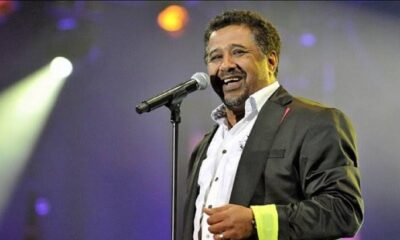

Algeria accuses renowned Singer Cheb Khaled of spying for Morocco
-
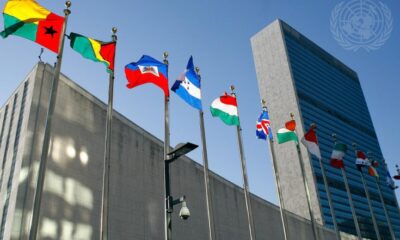

Behind the News: All the backstories to our major news this week
-


CAF picks Morocco as 2024 Awards host on Dec. 16
-
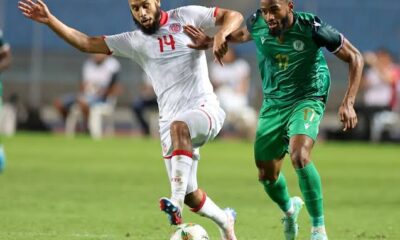

AFCON Qualifiers: Comoros shock Tunisia at home, Nigeria scrape 1-0 win over Libya
-
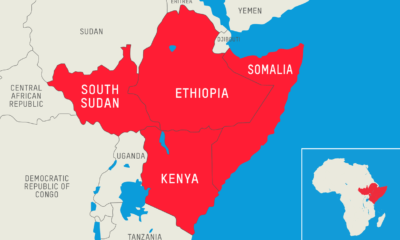

For EAC states to excel, members should hire expatriate ministers, By Joachim Buwembo
-
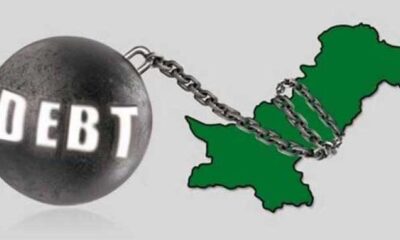

UN expert warns debt undermining poor countries’ development aspirations
Strictly Personal
Economic policies must be local, By Lekan Sote
Published
7 hours agoon
October 24, 2024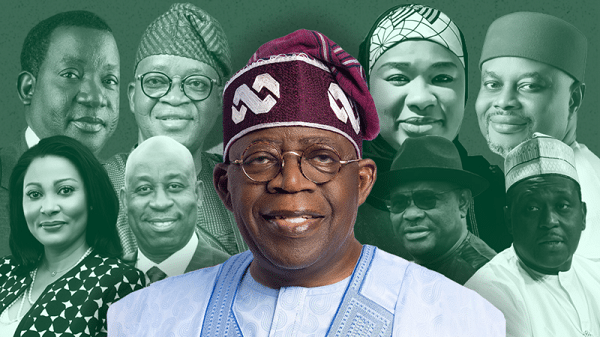
With 32.70 per cent headline inflation, 40.20 per cent food inflation, and bread inflation of 45 per cent, all caused by the removal of subsidies from petrol and electricity, and the government’s policy of allowing market forces to determine the value of the Naira, Nigerians are reeling under high cost of living.
The observation by Obi Alfred Achebe of Onitsha, that “The wellbeing of the people has declined more steeply in the last months,” leads to doubts about the “Renewed Hope” slogan of President Bola Tinubu’s government that is perceived as extravagant, whilst asking Nigerians to be patient and wait for its unfolding economic policies to mature.
It doesn’t look as if it will abate soon, Adebayo Adelabu, Minister of Power, who seems ready to hike electricity tariffs again, recently argued that the N225 per kilowatt hour of electricity that Discos charge Band A premium customers is lower than the N750 and N950 respective costs of running privately-owned petrol or diesel generators.
While noting that 129 million, or 56 per cent of Nigerians are trapped below poverty line, the World Bank revealed that real per capita Gross Domestic Product, which disregards the service industry component, is yet to recover from the pre-2016 economic depression under the government of Muhammadu Buhari.
This has led many to begin to doubt the government’s World Bank and International Monetary Fund-inspired neo-liberal economic policies that seem to have further impoverished poor Nigerians, practically eliminated the middle class, and is making the rich also cry.
Yet the World Bank, which is not letting up, recently pontificated that “previous domestic policy missteps (based mainly on its own advice) are compounding the shocks of rising inflation (that is) eroding the purchasing power of the people… and this policy is pushing many (citizens) into poverty.”
It zeroes in by asking Nigeria to stay the gruelling course, which Ibukun Omole thinks “is nothing more than a manifesto for exploitation… a blatant attempt to continue the cycle of exploitation… a tool of imperialism, promoting the same policies that have kept Nigeria under the thumb of… neocolonial agenda for decades.”
When Indermilt Gill, Senior Vice President of the World Bank, told the 30th Summit of Nigeria’s Economic Summit Group, in Abuja, Federal Capital Territory, that Nigerians may have to endure the harrowing economic conditions for another 10 to 15 years, attendees murmured but didn’t walk out on him because of Nigerian’s tradition of politeness to guests.
Governor Bala Muhammed of Bauchi State, who agrees with the World Bank that “purchasing power has dwindled,” also thinks that “these (World Bank-inspired) policies, usually handed down by arm-twisting compulsions, are not working.”
What seems to be trending now is the suggestion that because these neo-liberal policies do not seem to be helping the economy and the citizens of Nigeria, at least in the short term, it would be better to think up homegrown solutions to Nigeria’s economic problems.
Late Speaker of America’s House of Representatives, Tip O’Neill, is quoted to have quipped that, at the end of the day, “All politics is local.” He may have come to that conclusion after observing that it takes the locals in a community to know what is best for them.
This aphorism must apply to economics, a field of study that is derived from sociology, which is the study of the way of life of a people. Proof of this is in “The Wealth of Nations,” written by Adam Smith, who is regarded as the first scholar of economics.
In his Introduction to the Penguin Classics edition of “The Wealth of Nations,” Andrew Skinner observes: “Adam Smith was undoubtedly the remarkable product of a remarkable age and one whose writing clearly reflects the intellectual, social and economic conditions of the period.”
To drive the point home that Smith’s book was written for his people and his time, Skinner reiterated that “the general ‘philosophy,’ which it contained was so thoroughly in accord with the aspirations and circumstances of his age.”
In a Freudian slip of the Darwinist realities of the Industrial Revolution that birthed individualism, capitalism, and global trade, Smith averred that “How selfish soever man may be supposed, there are evidently some principle in his nature which interest him in the fortune of others, and render their happiness necessary to him, though he derives nothing from it, except the pleasures of seeing it.”
And, he let it slip that capitalism is for the advantage of Europe when he confessed that “Europe, by not leaving things at perfect liberty (the so-called Invisible Hand), occasions… inequities,” by “restraining the competition in some trades to a smaller number… increasing it in others beyond what it naturally would be… and… free circulation of labour (or expertise) and stocks (goods) both from employment to employment and from place to place!”
Policymakers, who think Bretton Woods institutions will advise policies to replicate the success of the Euro-American economy in Nigeria must be daydreaming. After advising elimination of subsidy, as global best practices that reflect market forces, they failed to suggest that Nigeria’s N70,000 monthly minimum wage, neither reflects the realities of the global marketplace, nor Section 16(2,d) of Nigeria’s Constitution, which suggests a “reasonable national minimum living wage… for all citizens.”
After Alex Sienart, World Bank’s lead economist in Nigeria, pointed out that the wage increase will directly affect the lives of only 4.1 per cent of Nigerians, he suggested that Nigeria needed more productive jobs to reduce poverty. But he neither explained “productive jobs,” nor suggested how to create them.
In admitting past wrong economic policies that the World Bank recommended for Nigeria, its former President, Jim Yong Kim, confessed, “I think the World Bank has to take responsibility for having emphasized hard infrastructure –roads, rails, energy– for a long time…
“There is still the bias that says we will invest in hard infrastructure, and then we grow rich, (and) we will have enough money to invest in health and education. (But) we are now saying that’s the wrong approach, that you’ve got to start investing in your people.”
Kim is a Korean-American physician, health expert, and anthropologist, whose Harvard University and Brown University Ivy League background shapes his decidedly “Pax American” worldview of America’s dominance of the world economy.
Despite his do-gooder posturing, his diagnoses and prescriptions still did not quite address the root cause of Nigeria’s economic woes, nor provide any solutions. They were mere diversions that stopped short of the way forward.
He should have advocated for the massive accumulation of capital and investments in the local production of manufacturing machinery, industrial spare parts, and raw materials—items that are currently imported, weakening Nigeria’s trade balance.
He should have pushed for the completion of Ajaokuta Steel Mill and helped to line up investors with managerial, technical, and financial competence to salvage Nigeria’s electricity sector, whose poor run has been described by Dr. Akinwumi Adesina, President of Africa Development Bank, as “killing Nigerian industries.”
He could have assembled consultants to accelerate the conversion of Nigeria’s commuter vehicles to Compressed Natural Gas and get banks of the metropolitan economies, that hold Nigeria’s foreign reserves in their vaults, to invest their low-interest funds into Nigeria’s agriculture— so that Nigeria will no longer import foodstuffs.
Nigerians need homegrown solutions to their economic woes.
Strictly Personal
For EAC states to excel, members should hire expatriate ministers, By Joachim Buwembo
Published
2 weeks agoon
October 11, 2024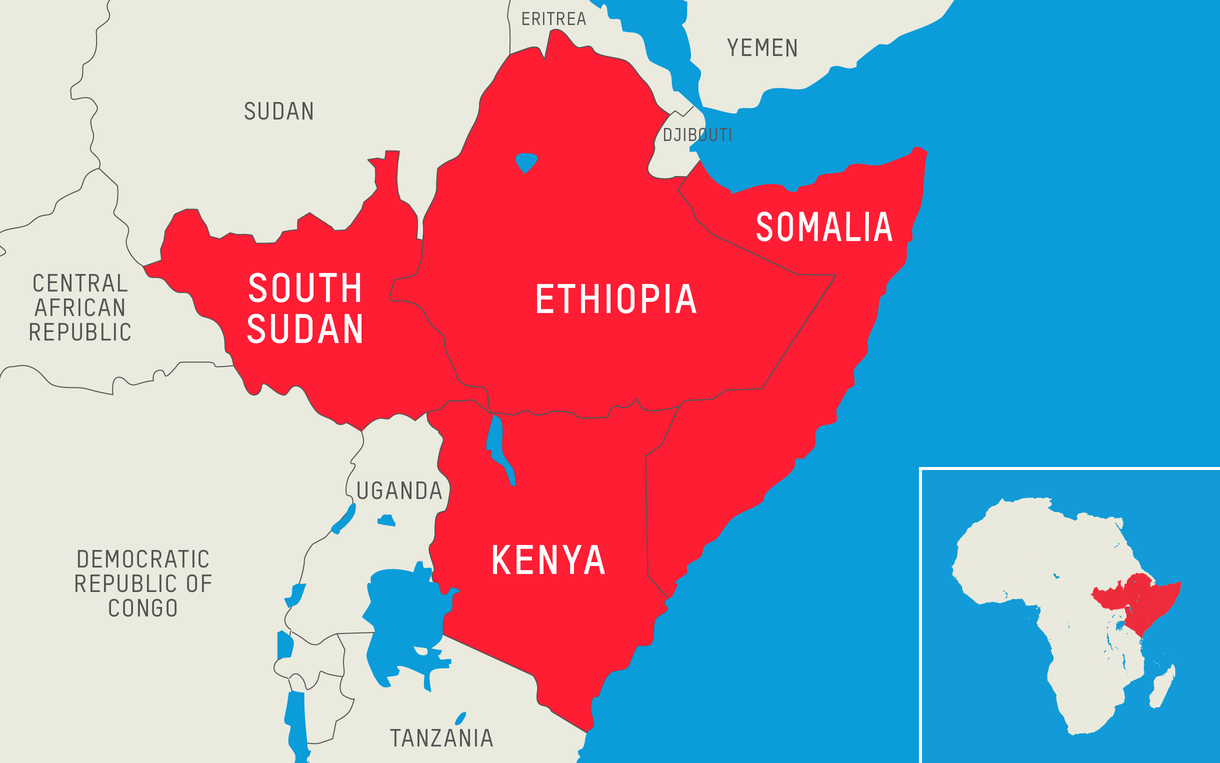
Next week, the East African Community, especially the original three members Kenya, Tanzania and Uganda, will be marking their revival Silver Jubilee, which is also an opportunity to reflect on 25 years after the passing of regional integration icon Mwalimu Julius Nyerere.
The integrationist and pro-federation Mwalimu would certainly be happy with the revival of the EAC. But how contented humanist Nyerere who committed his then poor country’s resources and lives to the emancipation of fellow Africans would be with the goings on in the region, can only be debated.
Hundreds of Tanzanian men and women at Nyerere’s command gave their lives so Ugandans would be saved from a dictatorship that attached low value to human life and “disappeared” political dissenters, with a few whose bodies were found having been disfigured sometimes with acid. In Kenya, extra-judicial executions of high-profile political dissenters were also being carried albeit with more sophistication than Uganda’s.
Should some people in Tanzania start derailing that lovely country backwards to catch up with the murderous Uganda and Kenya of the 1970s and criminalise the holding of different political views, then we would beg the EAC to find its manhood and insist that members start hiring expatriate ministers to man certain portfolios thus: For Justice and Law, expatriate ministers from the Scandinavian states would be preferable. But of course, beneficiaries of injustice and illegality would argue that ours are independent sovereign states; so to hell with protection of human lives.
For promotion of Trade and Tourism, expatriates from the United Arab Emirates would fit the bill. But of course, beneficiaries of poaching, smuggling and tax evasion would argue that ours are independent sovereign states; so to hell with expansion of trade and tourism.
For Industry, Indian expatriate ministers would do well to drive import substitution while creating millions of jobs in the region. But of course, beneficiaries of raw materials exportation and importation of consumer goods would oppose and argue that ours are independent sovereign states; so, to hell with the unemployed, human health and environmental protection.
For Finance and Economic Planning, Singaporean expatriate ministers would be appropriate, but of course beneficiaries of grand corruption and incompetence would argue passionately that ours are independent states; so let the taxes be stolen so the awful service delivery gets even worse while debilitating debts mount.
For Transport Infrastructure, expatriate ministers from the Netherlands would be suitable because integrated systems of air, rail, road and water were needed by yesterday, so that transport ceases being an obstacle and becomes an enabler of development instead.
But of course, beneficiaries dominant, inefficient transport modes will argue that we are independent, sovereign states; so let primitive transport systems and fragmented airspaces remain and keep the cost of living and doing business up.
For Energy, Japanese expatriate ministers would do the job to speedily guide our economies through the energy transition, and transfer technology like Chinese have done in Uganda to create local capacity to make electric vehicles.
But to drastically reduce reliance on fossil fuels some countries should consider hiring Ethiopian expatriate ministers who will know best how to say enough is enough, switch from internal combustion engines to electric.
US expatriate ministers can also be considered to help the adaptation of our aviation sectors to sustainable biofuel in addition to driving the processing of rare earth minerals into e-mobility batteries.
But profiteers from the poisoned fossil fuels would say we are independent and sovereign; so let fuel import bills remain high and the peoples’ health be damaged.
The all-important Education sector should without doubt be entrusted to expatriate ministers from Finland for wholesome development of our children.
But of course, the beneficiaries of the extortionist private schools and the cripplingly looted public institutions would argue that these are sovereign independent states; so let the children continue getting mentally stunted and unemployable.
And in Health, of course, the expatriate ministers should be from Sweden, to ensure that everyone accesses adequate health services. Expectedly, beneficiaries of public funds to secure treatment abroad and those who benefit from stolen medical supplies would argue that ours are independent sovereign states; so that the wanton deaths of children and mothers continue.
Give the Housing to expatriate Chinese ministers so we close the era of human beings living in pigsties. However, those who benefit from a disorganised, stunted housing sector would argue that we are independent sovereign states so the majority can continue living sub-humanly.
Joachim Buwembo is a Kampala based journalist. buwembo@gmail.com
EDITOR’S PICK
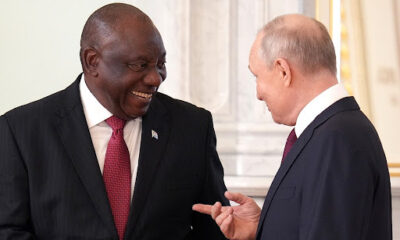

South Africa: Russia remains a valued ally, Ramaphosa tells Putin
At a bilateral meeting with Russian President, Vladimir Putin, on Tuesday, the eve of the BRICS summit of developing economies...
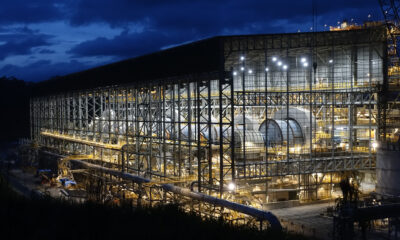

Canada’s First Quantum in pursuit of partners for Zambian assets
Without naming the companies, First Quantum Minerals, a Canadian miner, stated on Wednesday that it is in discussions with possible...


US requests probe into murders of two Mozambique opposition figures
The United States administration denounced the weekend deaths of two Mozambique opposition members, demanding a prompt and comprehensive inquiry ahead...


Economic policies must be local, By Lekan Sote
With 32.70 per cent headline inflation, 40.20 per cent food inflation, and bread inflation of 45 per cent, all caused...
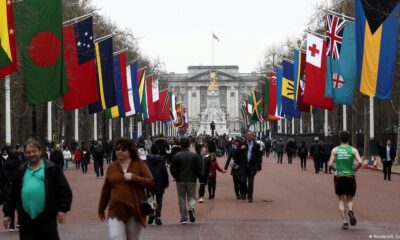

Britain says Commonwealth conference won’t discuss slavery reparations
Britain will not discuss reparations for historical transatlantic slavery at a Commonwealth conference that began in Samoa, but is open...
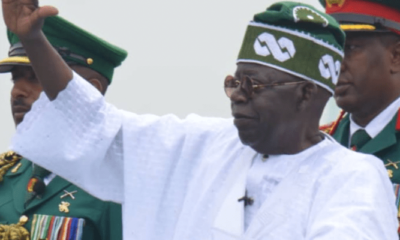

Nigeria’s Tinubu reshuffles cabinet
Following weeks of speculations around an imminent cabinet reshuffle in Nigeria, President Bola Tinubu on Wednesday dismissed six ministers from...
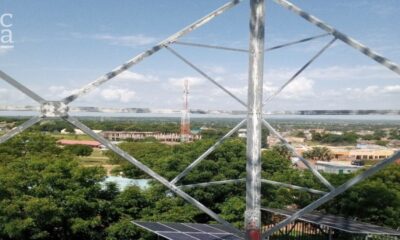

South Sudanese telcos increase tariffs as exchange rates soar
Telecommunication companies in South Sudan have been forced to increase their tariffs as a result of a hike in the...
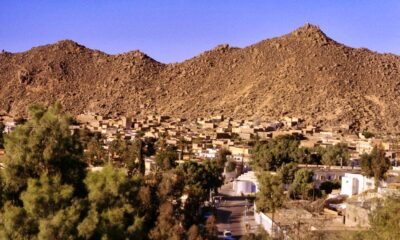

Two Algerians arrested over alleged murder of Swiss tourist
Algerian authorities have arrested two men in connection with the brutal murder of a Swiss tourist who was killed on...
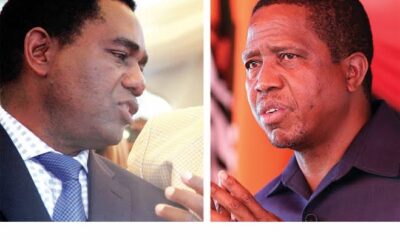

‘You’re better off in retirement, drinking in peace’, Zambian President taunts predecessor
Zambian President, Hakainde Hichilema, has told his predecessor, Edgar Lungu, that he should forget the presidency in 2026 as he...
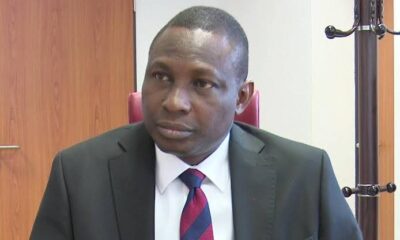

Nigeria: EFCC says country loses $500m to cybercrime annually
Chairman of Nigeria’s anti-corruption agency, the Economic and Financial Crimes Commission (EFCC), Ola Olukoyede, says the country loses over $500...
Trending
-

 Metro1 day ago
Metro1 day agoNigeria: EFCC says country loses $500m to cybercrime annually
-

 Metro23 hours ago
Metro23 hours ago‘You’re better off in retirement, drinking in peace’, Zambian President taunts predecessor
-

 Tech23 hours ago
Tech23 hours agoSouth Sudanese telcos increase tariffs as exchange rates soar
-

 Culture23 hours ago
Culture23 hours agoTwo Algerians arrested over alleged murder of Swiss tourist


